Interview: Author Carissa Halston on ‘The Mere Weight of Words’
|
|||||||||||||||||
|
The scholar John Rodden calls the literary interview a “fully-fledged genre.” I used to be skeptical, but after assigning my students at The College of Saint Rose to speak with an author, I’m more inclined to think the literary interview qualifies as a distinct form of performance. I put out a call on Facebook and Twitter: Would you speak to a college student about your book? I asked. Sure, they said. Review copies were sent, students selected authors, read and researched their work, and asked questions. - Daniel Nester, Contributing Word Editor |
AUTHOR CARISSA HALSTON ON ‘THE MERE WEIGHT OF WORDS’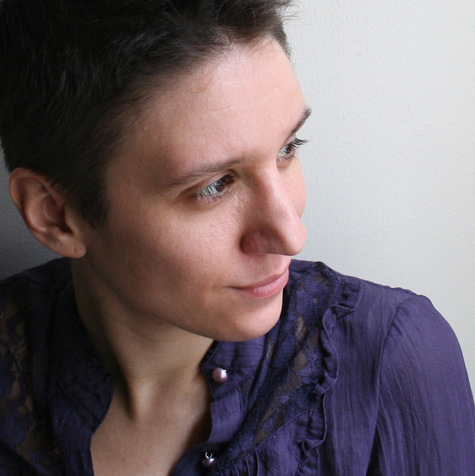 |
||||
INTERVIEWED BY
|
Boston-based Carissa Halston is author of A Girl Named Charlie Lester and the just-published The Mere Weight of Words. Other work recently appeared in such high-profile literary journals as Fourteen Hills and The Massachusetts Review. Already working on her next novel, Conjoined States, Halston and I connected over email to discuss life, her roots, and her idols. KAYLA KUILEMA: In The Mere Weight of Words, what influenced you to write about Meredith and her tragic news regarding her father’s diagnosis? CARISSA HALSTON: I started writing Mere’s story with the intention of writing about a person who had difficulty speaking. That difficulty complicated her estrangement from her father, as her awareness of her altered speech compounded with her awareness of her father’s awareness. She felt his scrutiny, always. So, when the book opens and she’s privy to news about him without actually receiving it from him, a role reversal occurs (though the reader won’t know that for another eighty pages). I’m not sure that Mere sees the news as tragic. I think she immediately starts processing what was left unsaid between them, but doesn’t actually acknowledge her father’s health until she sees him. And even then, it’s not his tragedy she’s considering. KUILEMA: The title of this novella is loaded with meaning and illustrates Meredith’s life. How did you come up it? HALSTON: When I began this project, I didn’t know Mere’s name. I knew I was writing about a woman who was paralyzed and who was emotionally distanced from her father. But I didn’t really know who she was beyond that. Luckily enough, I got an email not long after I began the manuscript from my friend Meredith. She signed it “Mere” and I gasped and responded to her, “Just so you know, I’m totally going to name a character ‘Mere,’” because I couldn’t think of a better thing to do than to give a character a disparaging adjective for a name. The more I thought about it, the more logical it became. A woman who decided to name herself after an adjective, a non-flattering one, no less, is the sort of person that thought about words the way a writer might. I knew then that I could make her a linguist—and further, a lexicographer—which just opened up her character for me. She became obsessed with the meaning of what we say and how we say it, even though the meaning is completely subjective. It gave me insight into who she was and how her desire to only speak when she could say what she truly meant made her relationships arduous work. KUILEMA: Describe yourself in three words. HALSTON: Sensitive. Ambitious. Wordy. KUILEMA: What is the craziest thing you’ve done? HALSTON: I once moved to New York City in order to save money. That was insane. To be fair, the thing I was saving money on was school (tuition was $4000/year), but still. I’d been married less than a year and we contacted a “realtor”—quotes used because it was basically a high-maintenance Craigslist situation, only lacking the charming, brass tacks website—who found us a tiny room in a miniscule apartment in Sunset Park (Brooklyn) that we shared with a kid who hid in his room the entire time we lived there. We didn’t unpack anything other than our clothes. Our room was a waist-high maze of books, carefully arranged into paths that led from the closet to the bed and from the bed to the door. We moved to our own apartment three months later, which was bigger, but expensive (and therefore defeating the entire point of my cheap tuition). We stuck it out for two years, but halfway through the second year, I transferred schools and we moved home to Boston. The best part was comparing the day we moved to Brooklyn with the day we moved home. When we moved to Brooklyn, we’d barely packed. I kept walking back into our apartment and grabbing a lamp or picking up a shopping bag filled with shoes. It was idiotic. It took us five hours to unpack the truck once we’d gotten to Sunset Park. Mind you, we didn’t own any furniture other than an end table, a floor lamp, and a couple of bookcases: one short, one tall. That, as opposed to the week leading up to the day we moved back to Boston, wherein I spent my time packing everything we owned, first into boxes, then the boxes into a cube that was the shape of the inside of the moving truck. It took 90 minutes to load everything and 45 minutes to unload it. And, since moving to NY, we’d bought two desks, one desk chair, another large bookcase, another small bookcase, and probably 200 books over and above what we’d already owned. Now that I’ve typed it out, that the craziest thing I’ve ever done involves higher education and books is unsurprising. KUILEMA: Do you have any pets? And what is your favorite animal? HALSTON: We recently adopted a cat. She’s a Siamese mix. We like calling her a raccoon panda (because her markings make it look like she’s always wearing a mask). My favorite animal is probably a person. |
||||
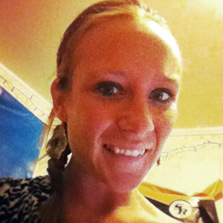 |
|||||
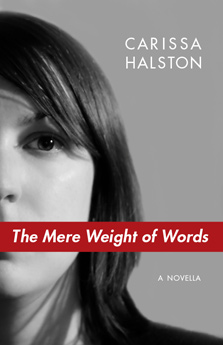 |
|||||
| (Book trailer for The Mere Weight of Words) | |||||
|
KUILEMA: When you’re not writing, what are you doing? Any fun hobbies? HALSTON: Because I’m in the middle of working on a new novel, my immediate reaction was, “Well, when I’m not writing, I’m usually thinking about writing/worrying that I’m not writing enough.” That said, there are things that allow me to clear my mind when I need a break. I love riding my bike around the city. It gives me this cinematic view of the buildings and the streets that I can’t get just walking down the sidewalk. As for hobbies, I love to act and sing. Though I call them hobbies, my interest in both affects how I present my work at readings. KUILEMA: Growing up, did you want to be an author? HALSTON: I wanted to be an actor. I wanted to be an actor right up to the moment that I realized I wasn’t cut out for that life. All the time an actor devotes to rehearsing is only worth the quality of the performance that he’s giving at the moment he’s performing it and it’s not just his performance, but that of his fellow cast members and the direction they’ve received and the quality of the source material, and the effects, and the set, and the physical space, and of course, the audience. Honestly, I just don’t have the time or the patience to commit myself to work for so little reliable payoff. When I’m devoting time and effort to something, I want to see a result, even if that only means the production of pages that are filled with lousy words (or, maybe perfectly fine words in lousy order). Either way, the words and the order are mine. And it’s on me to fix them or abandon them. The written word endures in a way that performance doesn’t. One is ephemeral and the other is potentially forever. Acting is to dating as writing is to monogamy. As a writer, and as a person who used to want to be an actor, I’m a serial monogamist. KUILEMA: Who is your idol? HALSTON: Idol’s a funny word in that it implies worship (something that, as an atheist, I shy away from), but there are a few writers whose fiction embodies the sort of idea-driven/character-driven hybrid I strive for in my own work. Donna Tartt comes to mind. And Italo Calvino. David Foster Wallace, too. Though I do want to underline that I don’t love every single word of theirs I’ve read, but what I admire most is that when they’re writing well, they reach a pinnacle that few other writers ever even attempt. KUILEMA: Now you went to school in CUNY, which is a college in Queens. What was your major? HALSTON: I started at CUNY (Queens College, except one class that I took at Hunter), then I transferred to UMass Boston. Transferring was the best decision I made regarding college, except of course, the decision to go in the first place. I was an English major, but before that, I’d created my own major, which was a combination of creative writing and visual storytelling. I called it “Letters and Sequential Art,” but due to a huge overhaul to the art department at Queens College (and increasing tuition), I left. I also considered majoring in linguistics for a while, but decided against it before I even declared. KUILEMA: How long have you been writing? HALSTON: 13 years, trial and error, just enough of the latter to keep things interesting. KUILEMA: What is your favorite word? HALSTON: Tautology. That’s actually an unfair answer in that it’s two words in one. I really like the word “taut” (it’s a sexy word) and you can’t spell tautology without it, but I also really love the meaning of tautology, in both linguistics and predicate logic. KUILEMA: What word do you hate or dislike the most? HALSTON: There are actually a slew of semi-related words that I hate. I used a lot of them in my story, “Kris and Tyler Compete.” All the words they mention at the end of the section labeled, “Least Appealing Word,” starting with “make love,” are words/phrases that I cannot stand. I feel dumb even getting into this, but the reason that I hate them is because they don’t remotely approach the meanings they should. They pander and over sentimentalize the concepts they’re meant to describe. And whenever I come across them, in fiction or in life, I squirm because they’re so inadequate and schmaltzy. The worst part of writing that story was that I wound up reading it aloud for the journal where it was published, so I had to say all of those words over and over and over until they sounded natural coming out of me, which took forever. They make me feel that cagey. KUILEMA: What inspires you to write? HALSTON: It used to be people. Some that I knew, others that I made up. Eventually, that merged with something else—a desire to push them, I think, because pushing them means pushing myself. I hear all sorts of aphorisms about writing and how it should be done and the things one should remember when doing it (things like, Write Good Characters, Then Hurt Them As Much As You’re Able) and even if I don’t agree with them, it’s difficult to un-hear those suggestions. So I start with a character and once I know who he is, I cut him up. I do a lot of what-iffing—what if a linguist lost control of her mouth? What if a person was both emotionally and physically paralyzed? After that, I get inspired by other books—not their plots or characters, per se, but form. When a writer hits on something really engaging form-wise, my first thought is usually, “I want to do that.” And even though my “that” doesn’t usually resemble their “that,” it’s sometimes where things start KUILEMA: Tell me about publishing your first novel. HALSTON: My first novel, A Girl Named Charlie Lester, is self-published. It garnered some small praise (though I often joke that the write-up from Kirkus Reviews is better written than the book is), but no bookstore would touch it because it was 2007 and self-publishing was tantamount to amateurism. I was scheduled to read from the novel at a series in New York that had, until that point, been a monthly event in a cafe. I then got an email from the host saying the series is moving to a bookstore; would I mind waiting until everything had settled? I said fine because the woman who ran the series seemed nice enough. But a month before I was supposed to read, she contacted me and asked if the book was self-published. At that point, my small press had grown, we were halfway through editing our first collection of poetry (Michael Lynch’s Underlife and Portico) and talking about moving our online journal to print, but those plans didn’t mean my book wasn’t self-published. So I told her yes and she cancelled my spot and that was that. Other problems, if they can be called that, are that I didn’t really know what I was doing with the production aspect of the book. The print is small. The text isn’t justified. The back cover doesn’t really match the front. But the book was a learning experience. I couldn’t have produced the work I’ve written since then had I not finished that novel. KUILEMA: I noticed you use Twitter, blogs, YouTube, and other social networking websites. Does this help you as a writer to promote your novellas? Does it help stay in contact with your fans? HALSTON: I do promote my work online, but the content depends on where I’m posting. My blog gets everything. Every event, every story, everything that happens to me professionally shows up there. It’s where most people who want to find my work will go, so I want it to be comprehensive. Twitter is where I usually just talk, sometimes to fans, yes, but I find that most fans I know are also writers, so it’s hard to think of them as anything other than peers or friends. As for Facebook, my publisher made a fan page for Mere, but there’s really only so much promoting I can do before I get sick of myself (and before everyone else gets sick of me too). Not to completely slander the Internet—because, honestly, who doesn’t love the internet?—but the way I prefer to promote my work is in person. I’ve averaged a reading every other month over the past two years. It’s an engaging way to interact with people because then I’m just a person rather than this untouchable voice that people are afraid to contact, which happens a lot online, even on the level playing field that is Facebook. In fact, here’s a conversation I recently had with a friend who works in publishing, as prompted by her status update: My “people you may know” is always a who’s who of indie lit rock stars that I find incredibly intimidating. KUILEMA: For any aspiring writers out there, what would your advice be? HALSTON: Write every day. Even when you don’t want to. Don’t be afraid to screw something up. You can always fix it later. Read with the purpose of finding work that moves you. Remember that you can be moved. Don’t listen to people who tell you what you can’t or won’t accomplish. Someone, somewhere, will like your writing. And someone, somewhere, won’t. Just keep doing it. Keep handy doses of humility and humor. That’ll stop you from resting when you’ve done well or stopping when you’ve done poorly. KUILEMA: In a blog interview you gave, you were talking about “coming out” to the public. After this incident happened, did you feel weight lifted off your shoulders? Was it easier once people knew the true you to write? HALSTON: It’s funny that you ask because it wasn’t really public and it wasn’t really an incident. It was just admitting something to myself and then saying it aloud to the person who I was dating. It was a regular, off-the-cuff conversation. And nothing really changed until I dated a girl years later. But now I’m married and I talk about it like everyone knows, which is interesting because it leads to really funny looks thrown my husband’s way. Most people are curious about how bisexuality works in a marriage (because you’re seen as having made a choice), but I haven’t chosen to do anything other than be in a committed relationship and it could have just as easily been with a woman (note: this is actually a gloss—there’s no relationship that’s ever really “easy”). As far as writing goes, I don’t really think about other people’s opinions of me when I write. I don’t even think about their opinions of what I’m writing until after it’s published. Then I think, “Wow, there’s a lot of sex in there. I hope that’s okay,” because I used to write sex a lot. I wrote about gay sex and straight sex and all sorts of gender disruption for years. But now when I write a sex scene, it’s often so not-at-all about sex. It’s about the interiority of a person and why the reader is seeing that moment, which usually means something not very good for my characters. Also, a lot of the sex in my most recent book is just hinted at because it’s told in the first-person and she’s not really a forthcoming character that way and I don’t ever want to write a book that isn’t honest. |
|||||
|
Visit Carissa Halston… carissahalston.aforementionedproductions.com |
|||||









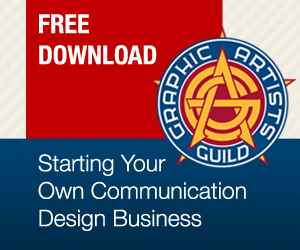
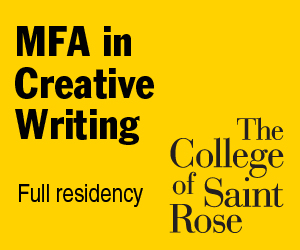
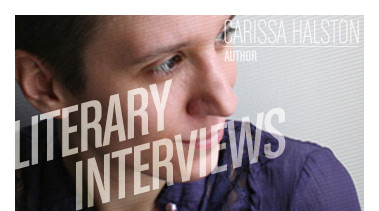
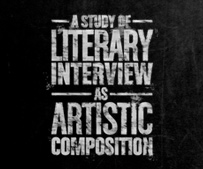














 Stated
Stated
Reader Comments